
We are one of several technical programmes in the Department of Noncommunicable Diseases and Mental Health at the WHO Regional Office for the Eastern Mediterranean in Cairo, Egypt. We provide advice, as well as technical and programmatic support to 22 countries in WHO’s Eastern Mediterranean Region, to strengthen their response to addressing noncommunicable diseases (NCDs), namely cardiovascular diseases (like heart attacks and stroke), cancers, chronic respiratory diseases (such as chronic obstructed pulmonary disease and asthma), diabetes and mental health disorders, as well as their related risk factors which are: tobacco use, unhealthy diets, physical inactivity, harmful use of alcohol and air pollution, to support health and wellbeing for all, at all ages, and to meet Sustainable Development Goal 3 target 3.4 (reduce deaths from NCDs and promote mental health). We support the development and implementation of evidence-based and feasible interventions, to promote health and well-being, prevent and manage NCDs.
NCDs are the world’s biggest killers and a leading cause of death in the Region. Every year, more than 2.8 million people in the Eastern Mediterranean Region die from the main NCDs alone. Cardiovascular diseases account for most NCD deaths, followed by cancers, chronic respiratory diseases, and diabetes (including kidney disease deaths caused by diabetes). The rates of mental health disorders, specifically depressive illness and anxiety disorders are also high in countries of the Region. Collectively, the main NCDs are responsible for 66% of all deaths in the Region. Over half of NCD deaths are premature, occurring before the age of 70, thus affecting economically productive individuals, impoverishing families, and placing a considerable burden on health systems and national economies. NCDs thus can stifle the potential for socioeconomic development.
Our goal
To strengthen efforts to address noncommunicable diseases (NCDs), namely cardiovascular diseases, cancers, chronic respiratory diseases, diabetes and mental health disorders, as well as their related risk factors (tobacco use, unhealthy diets, physical inactivity, harmful use of alcohol and air pollution) to support health and wellbeing for all, at all ages, and to meet Sustainable Development Goal 3 target 3.4 (reduce premature deaths from NCDs by one third by 2030, through prevention and treatment and promote mental health and well-being).
Scale up prevention and control of NCDs
We have a wealth of evidence-based tools and guidance to help you respond to the rising burden of noncommunicable diseases (NCDs) in the Region. Here are our key tools and guidance, which are cost-effective, feasible and affordable.
UN Political declaration on NCDs
The UN Political declaration on the prevention and control of NCDs was adopted by Heads of State and Government in September 2011. It provides a road map for countries and WHO to address the NCD epidemic, guided by the WHO Global strategy for prevention and control of NCDs and its related action plan. Over the years, the scope of the NCD agenda has broadened. A new Political Declaration on NCDs was endorsed by countries in 2018, and includes the promotion of mental health and well-being, reduction of indoor and outdoor air pollution, and commitments on NCD economics, encouraging countries to effectively use fiscal measures, innovative financing models and NCD investment cases to calculate the return on investment as a means to advocate for and better finance a more comprehensive national NCD response. Moreover, the 2018 Political Declaration acknowledges the importance of NCD management in emergencies, a significant area of work for the Eastern Mediterranean Region, given the heavy NCD burden and many ongoing and protracted emergencies in the Region.
Global action plan on NCDs 2013–2020 (extended to 2030)
The WHO Global action plan for the prevention and control of NCDs 2013–2020 (extended to 2030) provides countries, international partners and WHO with a road map and menu of policy options which, when implemented collectively between 2013 and 2030, will contribute to progress on 9 global NCD targets, including a reduction in premature deaths from NCDs by one third by 2030. The 9 voluntary global targets address key NCD risk factors, including tobacco use, salt intake, physical inactivity, high blood pressure and harmful use of alcohol.
The action plan provides ‘best buys’ or cost-effective, high-impact interventions recommended by WHO, including banning all forms of tobacco advertising, replacing trans fats with polyunsaturated fats, restricting or banning alcohol advertising, preventing heart attacks and strokes, promoting breastfeeding, implementing public awareness programmes on diet and physical activity, and preventing cervical cancer through screening.
WHO Global monitoring framework
WHO’s global monitoring framework on NCDs started tracking implementation of the Global action plan on NCDs through monitoring and reporting on the attainment of the 9 global targets for NCDs in 2015, against a baseline in 2010. WHO is providing support to countries in implementing simple steps which can reduce the prevalence of NCDs, such as raising tobacco taxes, reducing the amount of salt in foods and improving access to inexpensive medicines to prevent heart attacks and strokes.
Regional framework for action on NCDs
The regional framework for action on the prevention and control of NCDs is the road map for countries to implement the UN Political declaration on NCDs and serves as the regional adaptation of the Global action plan on the prevention and control of NCDs 2013–2020 (extended to 2030). It consists of 19 strategic interventions for countries to implement in the four key areas of: governance; prevention and reduction of risk factors; surveillance, monitoring and evaluation; and health care. It also includes 14 indicators which WHO uses to track and report on progress made by countries. The framework is the way forward for countries to better prevent, treat and manage NCDs, and improve health and well-being.
More on Noncommunicable Disease programme
The WHO Noncommunicable Disease (NCD) programme is one of several technical programmes in the Department of Noncommunicable Diseases and Mental Health at the WHO Regional Office for the Eastern Mediterranean in Cairo, Egypt. The Programme consists of three technical programmes, which include: prevention, management and surveillance of NCDs. Each of these three technical programmes are managed by a regional adviser, medical officer and regional surveillance officer respectively, who are based in the Regional Office. The team works closely with core teams, including mental health and substance use, tobacco control, nutrition and communication, as well as with WHO headquarters in Geneva, other regional offices in Africa, the Americas, Europe, South-East Asia and the Western Pacific, as well as 22 country offices and/or country desk officers, ministries of health, collaborating centres and national and international partners, as well as individuals and communities to:
raise the priority accorded to NCDs in development work at global and national levels, and to integrate prevention and control of such diseases into policies across all government departments.
establish and strengthen national policies and plans for the prevention and control of NCDs.
promote interventions to reduce the risk factors for NCDs: tobacco use, unhealthy diets, physical inactivity, harmful use of alcohol and air pollution (indoor and outdoor).
promote research for the prevention and control of NCDs.
promote partnerships for the prevention and control of NCDs.
monitor NCDs and their determinants and evaluate progress at the national, regional and global levels.
Contact the Regional Office team
Noncommunicable Disease Prevention
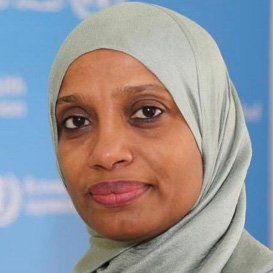
Dr Lamia Mahmoud
Regional Adviser
Noncommunicable Disease Prevention Programme
Department of Noncommunicable Diseases and Mental Health
Work: +2 02 227 65696
Email:
This e-mail address is being protected from spambots. You need JavaScript enabled to view it

Dr Giuseppe Troisi
Technical Officer
Noncommunicable Disease Prevention Programme
Department of Noncommunicable Diseases and Mental Health
Work: +2 02 227 65361
Email:
This e-mail address is being protected from spambots. You need JavaScript enabled to view it

Ms Farah Megalaa
Programme Assistant
Noncommunicable Disease Prevention Programme
Department of Noncommunicable Diseases and Mental Health
Work: +202 227 65434
Email:
This e-mail address is being protected from spambots. You need JavaScript enabled to view it
Nutrition

Dr Ayoub Al-Jawaldeh
Regional Adviser
Nutrition Programme
Department of Noncommunicable Diseases and Mental Health
Work: +2 02 227 65324
Email:
This e-mail address is being protected from spambots. You need JavaScript enabled to view it

Ms Nashwa Mansour
Programme Assistant
Nutrition Programme
Department of Noncommunicable Diseases and Mental Health
Work: +202 227 65376
Email:
This e-mail address is being protected from spambots. You need JavaScript enabled to view it
Tobacco Free Initiative
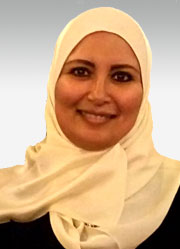
Dr Fatimah El Awa
Regional Adviser
Tobacco Free Initiative
Department of Noncommunicable Diseases and Mental Health
Work: +202 227 65340
Email:
This e-mail address is being protected from spambots. You need JavaScript enabled to view it
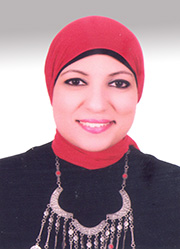
Ms Radwa El Wakil
Programme Assistant
Tobacco Free Initiative
Department of Noncommunicable Diseases and Mental Health
Work: +202 227 65675
Email:
This e-mail address is being protected from spambots. You need JavaScript enabled to view it
Noncommunicable Disease Management
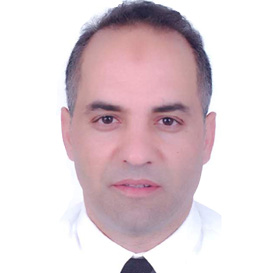
Dr Hicham El Berri
Medical Officer
Noncommunicable Disease Management Programme
Department of Noncommunicable Diseases and Mental Health
Work: +202 227 65311
Email:
This e-mail address is being protected from spambots. You need JavaScript enabled to view it

Ms Maggie Awadalla
Programme Assistant
Noncommunicable Disease Management Programme
Department of Noncommunicable Diseases and Mental Health
Work: +202 227 65547
Email:
This e-mail address is being protected from spambots. You need JavaScript enabled to view it
Mental Health and Substance Use
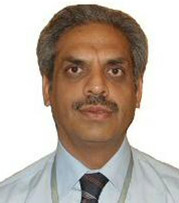
Dr Khalid Saeed
Regional Adviser
Mental Health and Substance Use Programme
Department of Noncommunicable Diseases and Mental Health
Work: +2 02 227 65368
Email:
This e-mail address is being protected from spambots. You need JavaScript enabled to view it
Noncommunicable Disease Surveillance
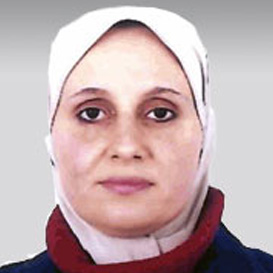
Dr Heba Fouad
Regional Surveillance Officer
Noncommunicable Disease Surveillance Programme
Department of Noncommunicable Diseases and Mental Health
Work: +202 227 65587
Email:
This e-mail address is being protected from spambots. You need JavaScript enabled to view it
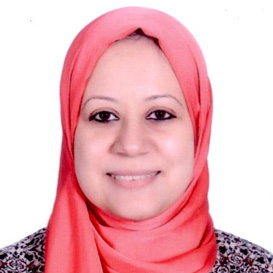
Ms Rania Mahmoud
Programme Assistant
Noncommunicable Disease Surveillance Programme
Department of Noncommunicable Diseases and Mental Health
Work: +202 227 65518
Email:
This e-mail address is being protected from spambots. You need JavaScript enabled to view it




